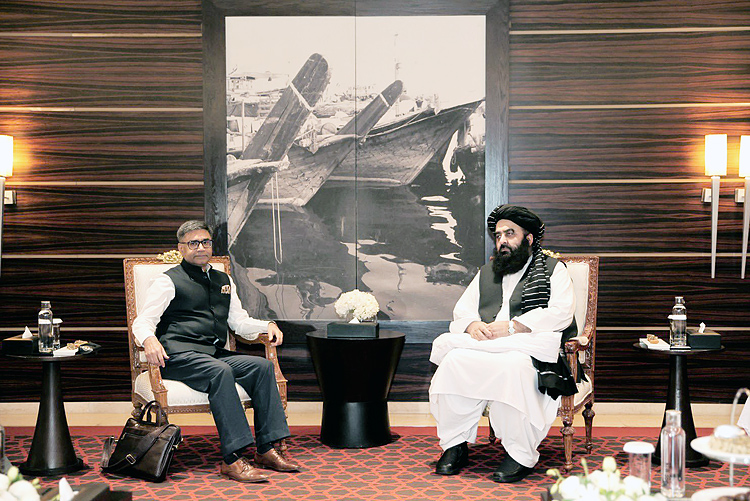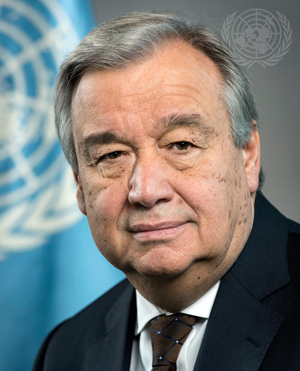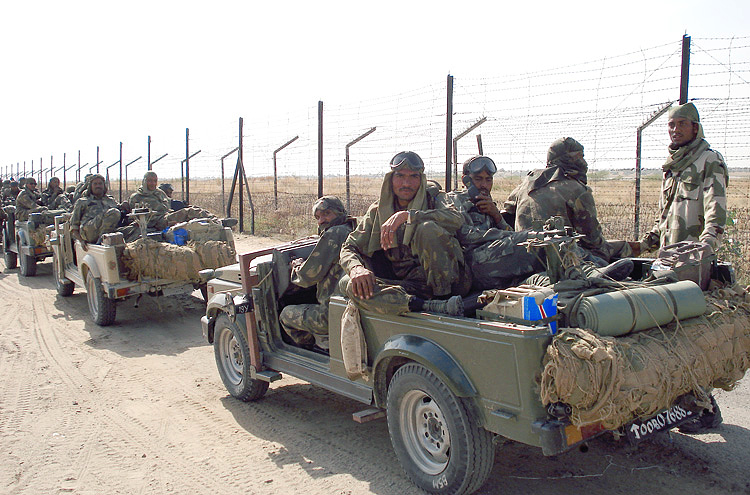INDIAN ARMED FORCES CHIEFS ON OUR RELENTLESS AND FOCUSED PUBLISHING EFFORTS

The insightful articles, inspiring narrations and analytical perspectives presented by the Editorial Team, establish an alluring connect with the reader. My compliments and best wishes to SP Guide Publications.

"Over the past 60 years, the growth of SP Guide Publications has mirrored the rising stature of Indian Navy. Its well-researched and informative magazines on Defence and Aerospace sector have served to shape an educated opinion of our military personnel, policy makers and the public alike. I wish SP's Publication team continued success, fair winds and following seas in all future endeavour!"

Since, its inception in 1964, SP Guide Publications has consistently demonstrated commitment to high-quality journalism in the aerospace and defence sectors, earning a well-deserved reputation as Asia's largest media house in this domain. I wish SP Guide Publications continued success in its pursuit of excellence.
- Operation Sindoor: Resolute yet Restrained
- India’s Operation Sindoor Sends a Clear Message to Terror and the World – ‘ZERO TOLERANCE’
- Japan and India set forth a defence cooperation consultancy framework, talks on tank and jet engines
- Terrorist Attack in Pahalgam in Kashmir: Unfolding a long surgical war against PAK
- Lt General Pratik Sharma takes over Command of Indian Army's Northern Command
UN Warns India of Terror Threat
The UN report highlighted the adaptability of IS and Al-Qaida, noting that these terror groups remain resilient despite counter-terrorism efforts
 |
The Author is Former Director General of Information Systems and A Special Forces Veteran, Indian Army |

The 35th report of the Analytical Support and Sanctions Monitoring Team of the United Nations has warned that the Islamic State (IS) planned large-scale attacks in India. The report warned that the Islamic State remains a significant threat, particularly in India, where despite being unable to carry out major attacks, the group's handlers have been actively promoting lone-wolf attacks through local sympathisers. The report highlighted the adaptability of IS and Al-Qaida, noting that these terror groups remain resilient despite counter-terrorism efforts. The pro-IS Al-Jauhar Media continues to spread anti-India propaganda through its publication "Serat ul-Haq." The report also highlights the pressing security concerns stemming from Afghanistan, where over two dozen terrorist organisations remain active.
UN Secretary-General António Guterres reiterated concerns, stating, 'The situation in Afghanistan remains concerning, with ISIL-K continuing to represent a threat not only to the country but also to the region and beyond

The UN Secretary-General's 20th report sounds the alarm on the group's Khorasan Province (ISIL-K), citing it as a major threat to regional stability; ISIL-K has been targeting ethnic minorities, the Taliban regime. The report notes that ISIL-K's influence extends beyond Afghanistan, with the group spreading its presence across Central and South Asia. Notably, Tajik nationals comprise a substantial number of ISIL-K's recruits. UN Secretary-General António Guterres reiterated concerns, stating, "The situation in Afghanistan remains concerning, with ISIL-K continuing to represent a threat not only to the country but also to the region and beyond." He urged global cooperation, adding, "I continue to call upon all Member States to unite to prevent Afghanistan from again becoming a hotbed of terrorist activities affecting other countries."
Concurrently, Interpol has issued a Red Corner Notice against Mohammad Shoeb Khan (hiding in Libya) accused in the Chhatrapati Sambhajinagar (Aurangabad) ISIS module case. Khan is believed to be hiding in Libya. In February 2024, the National Investigation Agency had arrested a few youth in Maharashtra with evidence of an anti-India conspiracy being planned in coordination with Libya-based Mohammad Shoen Khan to promote ISIS's extremist agenda. The accused were recruiting youth for terror attacks on sensitive installations across India. Investigations found that Mohammad Shoeb Khan recruited Mohammad Zoheb Khan, who created a WhatsApp group to radicalise and enlist more than 50 young individuals from Aurangabad for ISIS operations.
Pakistan is actively redirecting focus from domestic turmoil to Jammu and Kashmir (J&K), reviving jihadist rhetoric, firing across the LoC deliberately violating the ceasefire, reviving jihadi rhetoric and aligning with global terror groups
But it is not just two dozen plus terrorist groups active in Afghanistan, Pakistan is also a crucible of terrorism with some 20 listed and unlisted terrorist groups in that country in league with the Pakistani Army/ISI. Terrorist leaders from Bangladesh have been making reciprocal visits to Pakistan, planning and coordinating terrorist actions; the common target being India. Moreover, a fallout of the Israeli action in Gaza has resulted in Hamas leaders travelling to Pakistan and holding talks with the Lashkar-e-Taiba – the target of Islamic jihad again being India. This, despite the fact that India has not declared Hamas a terrorist organisation. Additionally, in the recent past, Turkey had offered fighters to Pakistan for carrying out jihad in Kashmir. Islamic radicalisation in and attacks on Hindus is continuing in Bangladesh. The terrorist threat to India, therefore, is much more than what the above mentioned UN report has pointed out.

According to news reports of February 17, 2025, the Taliban-led interim government has called on India to establish its full-fledged embassy in Kabul. During the meeting between Foreign Secretary Vikram Misri and Taliban Foreign Minister Amir Khan Mutaqqi in Dubai on January 8, 2025, a list of Afghan diplomats proposed to be posted to the Afghan Embassy in New Delhi, including Najib Shaheen as Afghan Ambassador, was handed over to Misri. On assuming control of Kabul, Taliban had moved Ikramuddin Kamil from the Afghan Consulate at Mumbai to head the mission in New Delhi. India will perhaps allow this concurrent to fully opening its embassy in Kabul. However, the issue to note is that the Tehrik-e-Taliban Pakistan (TTP), who are attacking Pakistan, and the Taliban are conjoined twins with - both want rule of Sharia and a Global Islamic Emirate. Moreover, intelligence reports indicate Taliban cadres transiting India to Nepal to train Nepalese Muslims.
It is apparent that Pakistan aims to increase terrorist attacks in India, especially in J&K, in the ensuing summer
Pakistan is actively redirecting focus from domestic turmoil to Jammu and Kashmir (J&K), reviving jihadist rhetoric, firing across the LoC deliberately violating the ceasefire, reviving jihadi rhetoric and aligning with global terror groups. On the night of February 4-5, 2025, the Indian Army ambushed a Pakistani Border Action Team (BAT) while it was attempting to attack a forward post in Krishna Ghati Sector of Poonch District in J&K. Seven infiltrators, including three Pakistani army personnel were killed; the killed included a Pakistani army captain. This incident happened simultaneously with Pakistan observing February 5 as 'Kashmir Solidarity Day' to promote its anti-India agenda. The rally on February 5 in Pakistan occupied Kashmir (POK) witnessed over 500 Islamic radicals shouting al-jihad, al-jihad. February 5, 2025 coincided with the fifth anniversary of India's historic decision to abrogate Article 370 in J&K.
In another significant incident, Chaudhary Anwar-ul-Haq, Prime Minister of POK, addressing the State Assembly, in the presence of Pakistan's Prime Minister Shehbaz Sharif, warned India that if the situation in Kashmir is not alleviated, militants will be unstoppable in crossing the Line of Control (LoC). Haq also hinted at Pakistan's readiness to deploy a new batch of Mujahideen to infiltrate India's J&K, with the intention of perpetrating violence and waging war through terror groups. This indicates that Pakistan intends to heat up the terror war in J&K in conjunction with regional and global terrorist organisations. Hamas-LeT coordination would also help internationalise Pakistan's Kashmir agenda.
On February 10, two Indian soldiers, including a Captain, were killed in an improvised explosive device (IED) placed by Pakistani terrorists along the Line of Control (LoC) in the Akhnoor Sector of J&K. On February 12, Pakistan violated the ceasefire by firing in the Krishna Ghati Sector. On February 17, Pakistan again resorted to unprovoked firing in the Gulpur area of Poonch Sector of the Pir Panjal valley. Attempts for infiltration are continuing with reports of terrorists waiting in launch pads across the LoC. It is apparent that Pakistan aims to increase terrorist attacks in India, especially in J&K, in the ensuing summer.
Within J&K, the terrorist tactics are to use thickly forested areas to hide and resort to opportunity ambushes/attacks on security forces, in addition to using IEDs and explosives. What buoys Pakistani terrorists is that India's proactive counter-terrorism strategy is limited to its own side of the LoC/border. This is because of lack of political will despite more than adequate army capability for transborder proactive operations. It is high time the political hierarchy gets over this defensive policy.





